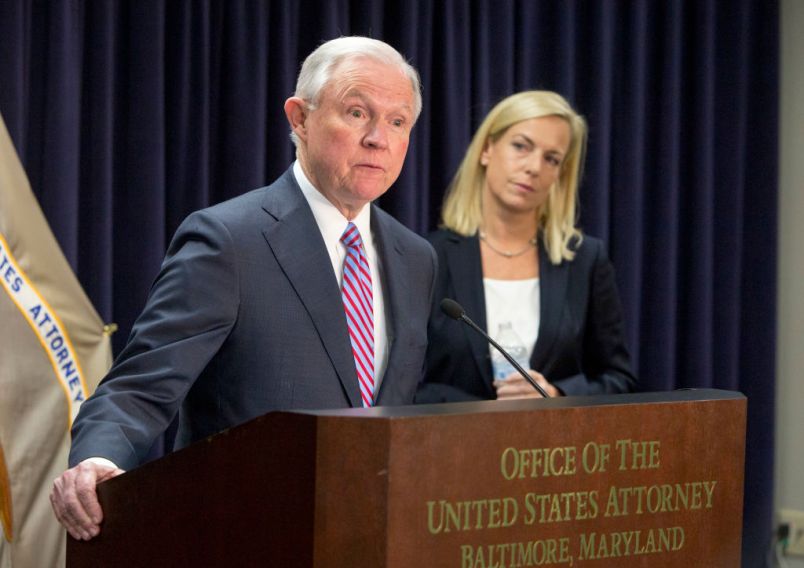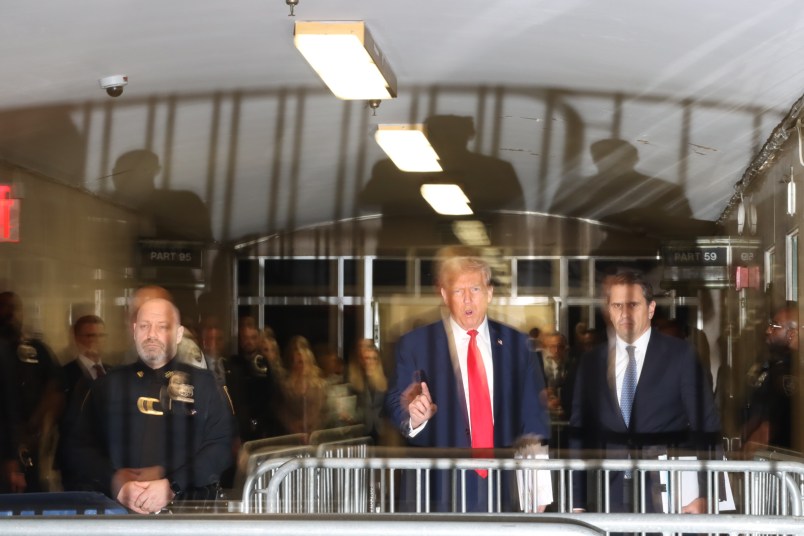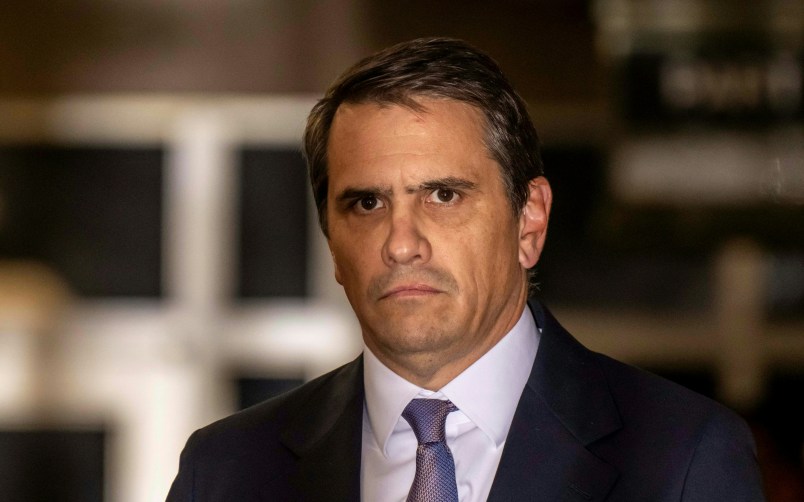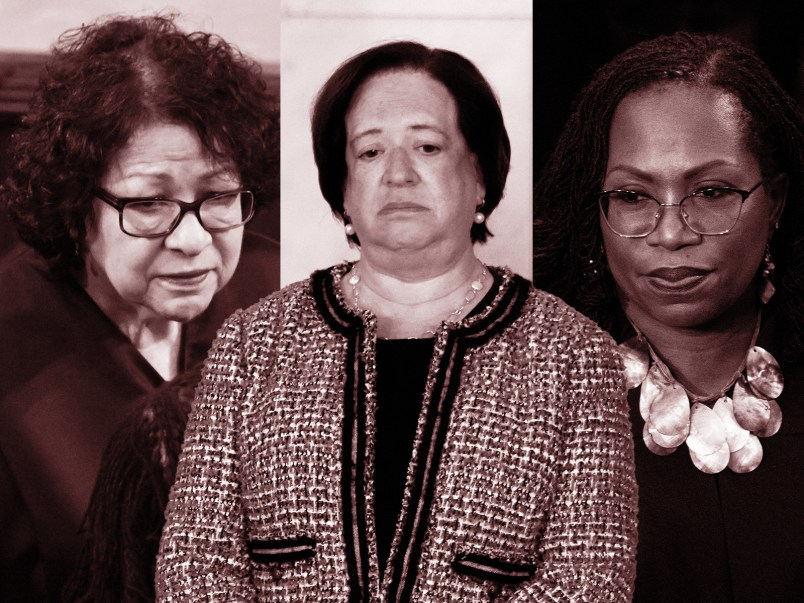Alice Ollstein contributed reporting.
Despite a federal judge’s ruling that migrant families separated by Trump administration policy must be reunited, and despite activists on the ground saying the government has stopped systematically prosecuting parents apprehended at the the border, a DOJ spokesperson told TPM Wednesday: “The Justice Department’s zero tolerance policy is still in effect.”
But how?
The policy, announced by Attorney General Jeff Sessions in April, called for the criminal prosecution of everyone apprehended at the border by the Department of Homeland Security and subsequently referred to DOJ.
Because children cannot be held in criminal detention, “zero tolerance” meant, in effect, that children would be systematically separated from their parents after being apprehended at the border.
And until last week, when President Donald Trump signed an executive order with the stated intent of keeping families detained indefinitely as parents proceed through criminal proceedings, that’s just what happened: DHS referred everyone, including parents, for prosecution.
But after Trump signed his executive order, the referral process changed: DHS (which houses Customs and Border Protection, and Immigration and Customs Enforcement) mostly stopped referring parents.
“In accordance with the Executive Order, I [CBP] ordered the temporary suspension of referrals for prosecutions for those who don’t have a criminal history, or child safety or welfare issues, medical need, while we work through a process with DOJ to maintain family unity while enforcing prosecution efforts,” CBP Commissioner Kevin McAleenan said in a statement Wednesday to TPM.
It differed from a similar statement quoted by outlets like the Washington Post and Los Angeles Times on Monday, in which McAleenan said he’d “directed the temporary suspension of prosecutions for families in that category.”
That minor distinction — the difference between CBP stopping its referrals of parents for prosecution, and DOJ prosecuting them — played out in a series of Washington Post headlines last week, a day after Trump’s order.
“U.S. will stop prosecuting parents who cross the border illegally with children, official says” an early headline blared.
Then, as the Justice Department objected, the headline changed: “Border Patrol will stop referring migrant parents who cross into the U.S. illegally with children for prosecution, official says”
Then it changed again: “Reversal on migrant families deepens confusion over Trump’s immigration order.”
It sure did. The wordplay was rather technical and yet profound, allowing the Justice Department to claim that, just like the President wanted, it was continuing its “zero tolerance” policy.
And, given that DHS does not have the capacity, nor the legal authority, to hold families together in detention indefinitely, the decision not to refer parents for prosecution necessarily meant one of two things: Non-asylum-seeking families, or members of families, would be deported; or families would be granted supervised release while awaiting their civil immigration proceedings.
As of now, we’ve seen both, including detained parents who say they’ve signed voluntary deportation orders in exchange for the shaky promise that they’ll be reunited with their children before they’re deported.
DOJ did not elaborate, when asked, on CBP Commissioner McAleenan’s statement that CBP was “work[ing] through a process with DOJ to maintain family unity while enforcing prosecution efforts.”
McAleenan told TPM in a separate statement: “We’re [DHS] working with DOJ on how we can streamline the process where we can have the parent prosecuted and still only separate the child for a few hours or less.”










